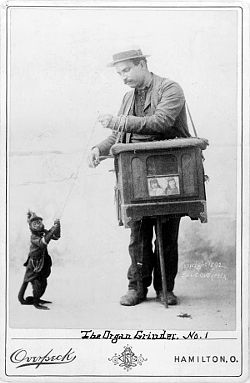Mention the word socialism to people and you’re likely to conjure images of Soviet tanks in Red Square, stern men with spider-veined noses, and the hammer & sickle.
Or some folks might think 2015’s first Democratic debate, when several Commander-in-Chief-wannabes fell all over each other to promise the most free stuff to the most people.
Or some might talk about a Scandinavian country or two, and how those countries seem to do a better job taking care of people at all stages of life than we do in the U.S. Canada’s or England’s “socialized medicine” may get a mention.
A few Christians may even recollect Gog & Magog, Hal Lindsey’s The Late Great Planet Earth, and Armageddon.
Whatever the case, a quick perusal of social (not socialist) media reveals the always inevitable divisions, as Americans line up either to fight socialism tooth-and-nail or to embrace it wholeheartedly.
Perhaps stating what socialism actually is might help focus the discussion. From Merriam Webster:
Socialism
1: any of various economic and political theories advocating collective or governmental ownership and administration of the means of production and distribution of goods
2 a: a system of society or group living in which there is no private property
b: a system or condition of society in which the means of production are owned and controlled by the state
3: a stage of society in Marxist theory transitional between capitalism and communism and distinguished by unequal distribution of goods and pay according to work done
As the definition states, a line of demarcation exists between communism and socialism, with socialism a stop on the way to full-fledged communism. Merriam Webster again:
Communism
1 a: a theory advocating elimination of private property
b: a system in which goods are owned in common and are available to all as needed
2 capitalized
a: a doctrine based on revolutionary Marxian socialism and Marxism-Leninism that was the official ideology of the Union of Soviet Socialist Republics
b: a totalitarian system of government in which a single authoritarian party controls state-owned means of production
c: a final stage of society in Marxist theory in which the state has withered away and economic goods are distributed equitably
d: communist systems collectively
I think these two definitions provide a foundation to talk about what socialism is and isn’t.
Now, because this is a Christian blog that aspires to make sense of modern American Christian living in light of the 1st century Church, I’ll throw into this mix two passages from the Bible:
So those who received his word were baptized, and there were added that day about three thousand souls. And they devoted themselves to the apostles’ teaching and the fellowship, to the breaking of bread and the prayers. And awe came upon every soul, and many wonders and signs were being done through the apostles. And all who believed were together and had all things in common. And they were selling their possessions and belongings and distributing the proceeds to all, as any had need. And day by day, attending the temple together and breaking bread in their homes, they received their food with glad and generous hearts, praising God and having favor with all the people. And the Lord added to their number day by day those who were being saved.
—Acts 2:41-47 ESV
Now the full number of those who believed were of one heart and soul, and no one said that any of the things that belonged to him was his own, but they had everything in common. And with great power the apostles were giving their testimony to the resurrection of the Lord Jesus, and great grace was upon them all. There was not a needy person among them, for as many as were owners of lands or houses sold them and brought the proceeds of what was sold and laid it at the apostles’ feet, and it was distributed to each as any had need.
—Acts 4:32-35 ESV
I believe it is important for us to place these verses in the context of Pentecost, when the Holy Spirit first fell on the new Church in power. What were the actions of people newly filled by the Spirit of God?
- Devoting themselves to receiving teaching
- Devoting themselves to fellowship and to one another
- Sharing meals together
- Praying
- Manifesting signs and wonders
- Showing awe for God’s working
- Practicing unity by holding all things in common
- Selling possessions and land and distributing the proceeds to those among them who were needy
- Ensuring none among them was needy
- Redistributing goods and properties
- Rejecting claims of personal ownership
- Meeting together in the temple and in each others’ homes
- Displaying gladness, generosity, and praise to God
- Testifying to the resurrection of Jesus
Would you not agree that all these are evidence of a changed way of thinking and living due to being filled with the Spirit? They were practices and beliefs that set apart Christians from the rest of the society of their time. They are the distinctives of Christian life, belief, and practice made manifest immediately after the individuals who make up the Church were filled by the Holy Spirit.
You hear the term DNA tossed around a lot in both the corporate world and American churches. But do we believe that the list above constitutes part of the DNA of the Church?
No, I don’t believe we do.
It never fails that quoting these two passages from Acts raises more ire in supposed born-again Christians than almost anything I can quote from the New Testament.
Actually, let me qualify that: They raise the ire of American Christians. I’m not so sure they would trouble those who live outside North America or who cannot be considered part of the West.
The trouble items in the list:
- Practicing unity by holding all things in common
- Selling possessions and property and distributing the proceeds to those among them who were needy
- Ensuring none among them was needy
- Redistributing goods and properties
- Rejecting claims of personal ownership
Some Christians bristle at the thought of socialism coming to America. Other Christians think the Church needs to be more socialistic or at least support government programs that reflect socialistic ways of thinking and acting.
The catch: According to the definitions from Merriam Webster, the economy the early Church practices in Acts wasn’t what we commonly think. In fact, it wasn’t socialism at all but—wait for it—communism (see the definition 1b).
Does that make anyone out there squirm?
Here’s another problem for those who have some issues with this new New Testament way of thinking about God’s economy: The Old Testament undergirds it.
And the LORD said to Aaron, “You shall have no inheritance in their land, neither shall you have any portion among them. I am your portion and your inheritance among the people of Israel. “To the Levites I have given every tithe in Israel for an inheritance, in return for their service that they do, their service in the tent of meeting, so that the people of Israel do not come near the tent of meeting, lest they bear sin and die…”
—Numbers 18:20-22 ESV
In the Old Covenant, the inheritance of the Levites, the tribe called by God to be His priests, was a portion of the bounty of those who were not in the priesthood. We call that a tithe, usually considered to be 10 percent, and it was what was expected to be received by the priesthood.
We know that the New Covenant Jesus established replaced the inadequate Old Covenant. Did that mean that Jesus did away with the priesthood?
But you are a chosen race, a royal priesthood, a holy nation, a people for his own possession, that you may proclaim the excellencies of him who called you out of darkness into his marvelous light.
—1 Peter 2:9 ESV
John to the seven churches that are in Asia: Grace to you and peace from him who is and who was and who is to come, and from the seven spirits who are before his throne, and from Jesus Christ the faithful witness, the firstborn of the dead, and the ruler of kings on earth. To him who loves us and has freed us from our sins by his blood and made us a kingdom, priests to his God and Father, to him be glory and dominion forever and ever. Amen.
—Revelation 1:4-6 ESV
Who is the priesthood in the New Testament? Everyone who is born again in Jesus. In other words, every person who comprises the Church.
And how do we see that priesthood operating in Acts? By tithes? By capitalism? By private ownership?
About that latter one:
I have been crucified with Christ. It is no longer I who live, but Christ who lives in me. And the life I now live in the flesh I live by faith in the Son of God, who loved me and gave himself for me.
—Galatians 2:20 ESV
For you have died, and your life is hidden with Christ in God. When Christ who is your life appears, then you also will appear with him in glory. Put to death therefore what is earthly in you: sexual immorality, impurity, passion, evil desire, and covetousness, which is idolatry. On account of these the wrath of God is coming.
—Colossians 3:3-6 ESV
What happens to the legal rights of the dead? To their property? What do they still own? Or can call their own?
Let’s run that list through one more time of the distinguishing practices of the Spirit-filled Church:
- Practicing unity by holding all things in common
- Selling possessions and property and distributing the proceeds to those among them who were needy
- Ensuring none among them was needy
- Redistributing goods and properties
- Rejecting claims of personal ownership
I hear a lot of talk about Acts 2 and 4 being descriptive and not prescriptive. But when you consider that the Spirit-filled Church understood itself to be a priesthood in which every person functioned as a priest, and that each person had been united to Christ in His death and could no longer lay claim to the things the living expect, it all begins to come together and make sense. We can see why the Church lived out that list.
 What we see is a new economy. God’s New Testament economy. The economy of a Spirit-filled Church. We, a royal priesthood, are no longer our own; we were bought with a price. That changes everything.
What we see is a new economy. God’s New Testament economy. The economy of a Spirit-filled Church. We, a royal priesthood, are no longer our own; we were bought with a price. That changes everything.
Because of Jesus, we don’t just give up part of ourselves, but we give up everything to be dead to the world and alive in Him.
Jesus is our inheritance as a priesthood. Nothing is ours in the world but Him. It’s all His, even us. Therefore, everything we are in Him is always to be available, especially to our fellow priests, who are His and in Him as well.
The problem for us American Christians is that we are Americans first and Christians second when it comes to issues of God’s New Testament economy. We don’t want to give up the idea of that thing over there being mine or that property belonging to me. We don’t want to hold things in common or give more than 10 percent, even though Jesus owns us and has made us His new priesthood.
Instead, we go off on tangents. We bristle at the idea that the government should forcibly take away our stuff and give it to someone else. Yet at the same time, we—as the Church—can’t be bothered to give up our stuff in the name of Jesus either, even if that stuff is going to a fellow Christian who needs it more than we do. Heck, we’re not even sure we should share it.
The American Dream clouds almost everything God wants us to think about how His New Testament economy works. Our hatred for Soviet-style Communism or Scandinavian quasi-Socialism obscures the rest. (See “American Civil Religion vs. True Christianity” for more.)
The result? We don’t really live the way the Bible shows how people filled with the Spirit are supposed to live when it comes to our stuff. Nor do we want to.
We won’t even consider it.
Which is sad, because I fear I wasted my time writing this.
So we Christians in America will go on debating whether the United States is threatened by socialism or communism or some other anti-Americanism -ism while God holds out His hands all day, every day, to a stiff-necked people who just can’t bring themselves to live the countercultural way He has purchased for us. Meanwhile, the lost of today sit waiting for someone, anyone, to heed the call to model for them the reality of the Kingdom of God.
 I’ve never seen an actual organ grinder and his monkey. Italian men with handlebar mustaches come to mind, wearing Tyrolean costumes, while a capuchin or spider monkey gambols about his feet in a cute, little red vest and fez.
I’ve never seen an actual organ grinder and his monkey. Italian men with handlebar mustaches come to mind, wearing Tyrolean costumes, while a capuchin or spider monkey gambols about his feet in a cute, little red vest and fez.
 What we see is a new economy. God’s New Testament economy. The economy of a Spirit-filled Church. We, a royal priesthood, are no longer our own; we were bought with a price. That changes everything.
What we see is a new economy. God’s New Testament economy. The economy of a Spirit-filled Church. We, a royal priesthood, are no longer our own; we were bought with a price. That changes everything. In an age of an increasingly vocal atheist minority, one very common thread weaves through the cries of the most shrill: They expected for a particular circumstance, resolved in their own way, and they did not receive it. What got abandoned in the aftermath is their faith in God.
In an age of an increasingly vocal atheist minority, one very common thread weaves through the cries of the most shrill: They expected for a particular circumstance, resolved in their own way, and they did not receive it. What got abandoned in the aftermath is their faith in God.